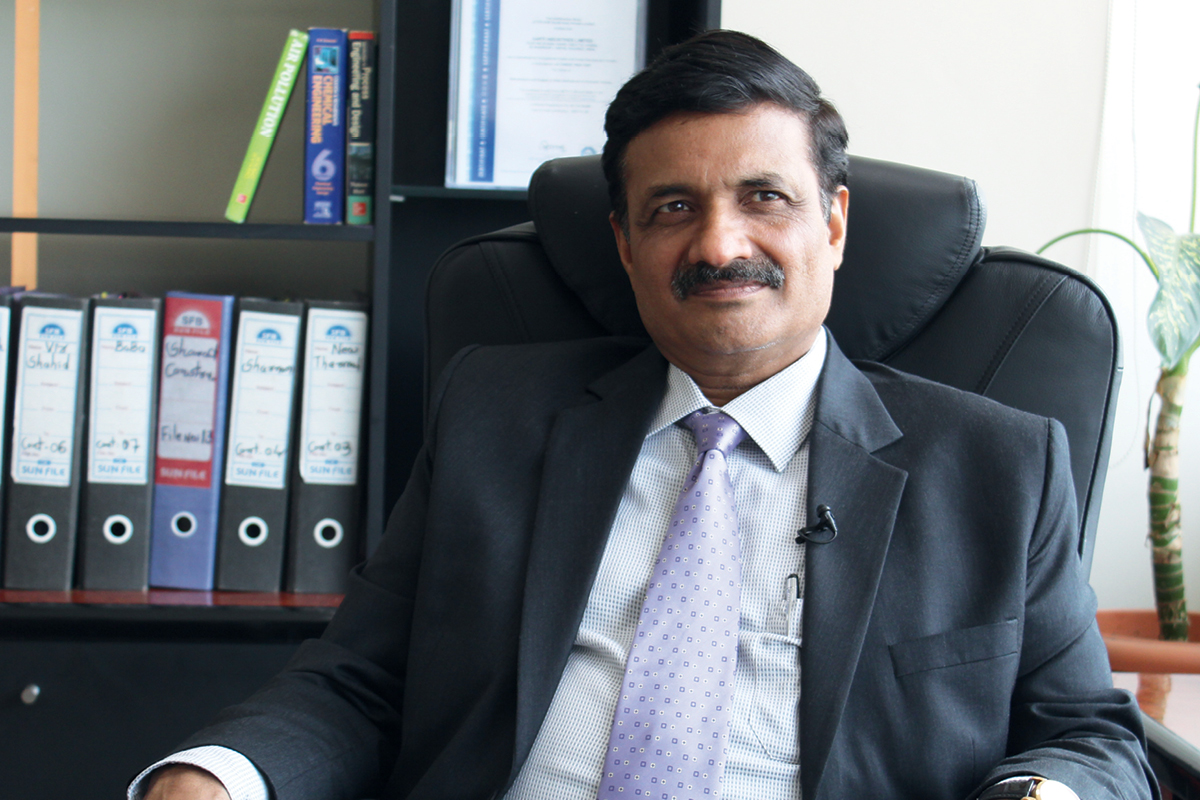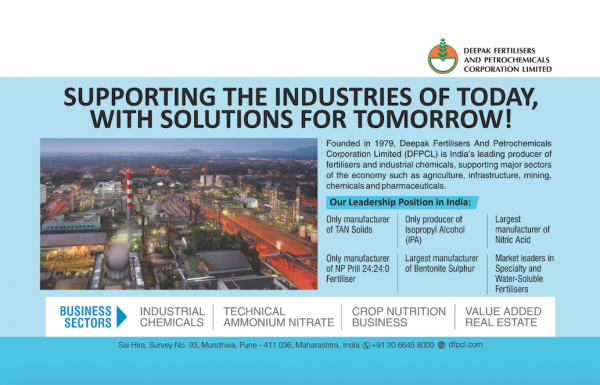While the world was turned on its head by COVID-19, chemical companies mostly managed to remain a little more resilient. Although raw materials were in short supply due to production restrictions, order books remained healthy with customers relying on the chemical companies to ride the crisis and resume service.

As one of India’s leading manufacturers of speciality chemicals and pharmaceuticals, Aarti Industries was no exception. In fact, the company’s vision to become a “global partner of choice” for major consumers of speciality chemicals is still very much on track with the COVID-19 crisis providing India’s speciality chemical industry with a golden opportunity to assert its dominance at an international level.
Prior to COVID-19, strict environmental regulations and increased labour costs were already impacting China, which was contributing up to 40 per cent to the worldwide chemical industry. The pandemic has aggravated the situation further as chemical companies seek to reduce their dependence on China and source alternative suppliers.
Meanwhile, the industry in India has been steadily growing, becoming more self-sufficient and increasing capacity. Spurred by annual growth between 15 and 20 per cent, it’s expected to become a US$300 billion dollar business by 2025.
Headquartered in Mumbai and led by Chair and Managing Director Rajendra Gogri, Aarti Industries Limited employs more than 5,000 people, producing over 200 products for 400-plus global clients and more than 700 domestic customers.
Its chemical division, the company’s mainstay, manufactures benzene-based intermediates, basic chemicals, speciality chemicals and intermediates for agrochemicals, which have varied end uses: agrochemicals are used in pesticides, herbicides and fungicides; dyes and pigments are used in printing inks; polymer and additives are used in aircraft, cars, bulletproof jackets and electronic products.
Its pharmaceutical division has two USFDAapproved manufacturing facilities where it manufactures Active Pharmaceutical Ingredients (API) and other pharma intermediates, which are used in anti-cancer, anti-asthma and hypertensive drugs.
It also manufactures anhydrous caffeine, which is used in various energy and aerated drinks. The company operates 15 plants located in western India and four cutting-edge R&D centres.
Its two centres in Dombivali and one in Vapi collectively employ more than 170 scientists and engineers, while a new fourth centre, which opened in March at Navi, houses 250 scientists, effectively doubling Aarti Industries’ R&D capabilities.
The strong focus of the new centre is on supply chains for value-added products requiring multiple levels of synthesis and being completely independent of intermediate supplies from China.
Over the years, as the country’s chemical industry hit a huge sweet spot in growth, Rajendra has become increasingly optimistic that India would become a preferred global supplier for speciality chemicals.
Huge investments in R&D and encouraging the development of homegrown technologies has triggered the exploration of new products and chemistries. “There has been a larger appetite to source dyes, agrochemicals and speciality chemicals from India,” he explains.
“We have a huge customer base in India and abroad, many of them multinationals, and choosing us as their partner of choice has helped them establish a very strong supply chain.”
Add to this COVID-19’s disruption to the global chemical sector’s supply chain, it is expected that Aarti Industries, being an integrated speciality chemical and active pharmaceutical ingredients (API) manufacturer, will benefit from the global shortage of key chemical ingredients by not only attracting new markets but also expanding existing ones.
Ultimately, we see the economic consequences of this pandemic as offering a positive for our chemical business, particularly as far as demand and prices are concerned.
“Ultimately, we see the economic consequences of this pandemic as offering a positive for our chemical business, particularly as far as demand and prices are concerned,” Rajendra says.

“We have been doing business for years with most of our customers and there is a lot of loyalty. In the kind of situation that COVID-19 has presented, you tend to increase your market share. You don’t get new customers – the existing customers’ market share tends to increase.”
Aarti Industries was founded by Rajendra’s brother Chandrakant, also a chemical engineer, who set up a small-scale manufacturing unit producing dimethyl sulphate in 1975.
Rajendra – after gaining his own bachelor’s degree in chemical engineering at Mumbai’s Institute of Chemical Technology, followed by his master’s from Iowa State University – joined the company as Joint Managing Director in 1984, the same year the company was incorporated.
In 1995, he was appointed Managing Director and, after his brother retired, he took on the additional role of Chair in 2012. He’s responsible for strategic planning, new business development and financial management, and is head of speciality chemicals, with his contribution honoured last year with the IIFL Wealth Hurun India Most Respected Entrepreneur of the Year award.
“It is a team effort,” he says. “We have core values – care, integrity and excellence – which have always been implemented throughout the journey of this company. Along the way, we’ve also aligned and adapted our strategy to establish ourselves as a global partner of choice. But whether our relationship is with a customer, supplier, banker or our employees, we prioritise strong relationships and foster very stable working arrangements with them. It’s much better for us to build good partnerships based on respect and loyalty than go for short-term advantages.”
Looking beyond COVID-19 and the potential of an increased market share, Rajendra says Aarti Industries’ primary focus remains research and development and operations, elements he sees as vital for survival in a very competitive chemical industry.
“These are key areas needing constant attention in the chemical industry,” he says. “We want to develop skills to create a stronger and expanded market using raw materials. At the same time, we have to maintain our reliability and productivity to produce them.
“Apart from getting quality products to our customers on time, we also have to pay special attention to the cost factor. Because there is not much pricing differentiation from various suppliers, chemicals are sold on specification, which means we have to excel in innovation and chemistry expertise while still competing cost-wise. It also means a vital parameter will be our relationship with our customers.”
Proudly supported by:

